External Condoms
PrEP is incredible tool in making sex safer, but condoms remain the most effective for curbing STI infections and is the cheapest method for stopping the spread of HIV.
In fact, each year ACT gives out tens of thousands of condom and lube packs in and around Toronto’s queer Village! This means gay men are continuing to utilize this HIV prevention method, over 35 years since it was adopted, to keep themselves safer during sex.
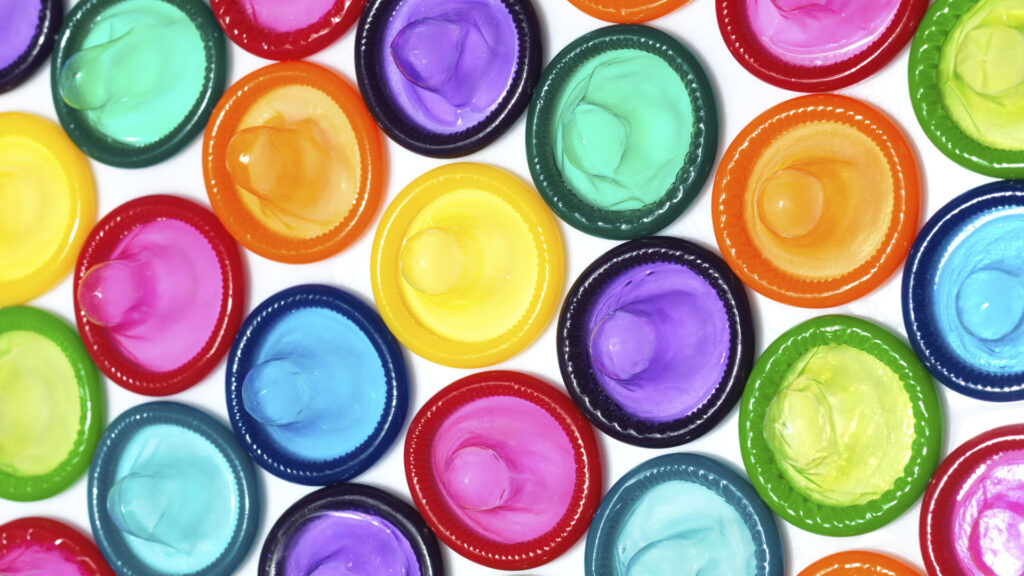
The efficacy of an intervention is how well it works in a scientific trial or when people use it precisely as indicated; its effectiveness is how well it actually works to prevent disease or infection in a given population, based on actual levels of use.
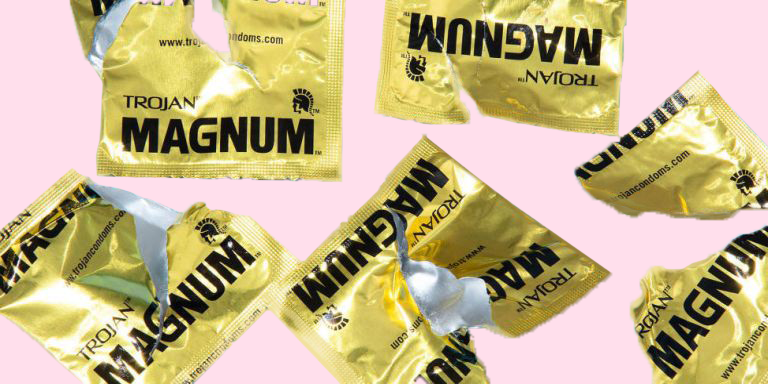
Therefore, while a condom’s efficacy is 100%, in the real world when condoms are used 100% of the time, though not necessarily 100% perfectly (i.e. with usual rates of breakage and slippage) they provide protection of about 80% against HIV (via frontal hole/vaginal sex) and 70% against HIV (via anal sex). Or, put another way, condoms stop 7 out of 10 new HIV infections acquired through anal sex between men.

It’s further estimated condoms provide protection of about 80% to 85% against gonorrhea, about 50% to 66% against syphilis, and 26% to 86% against chlamydia.
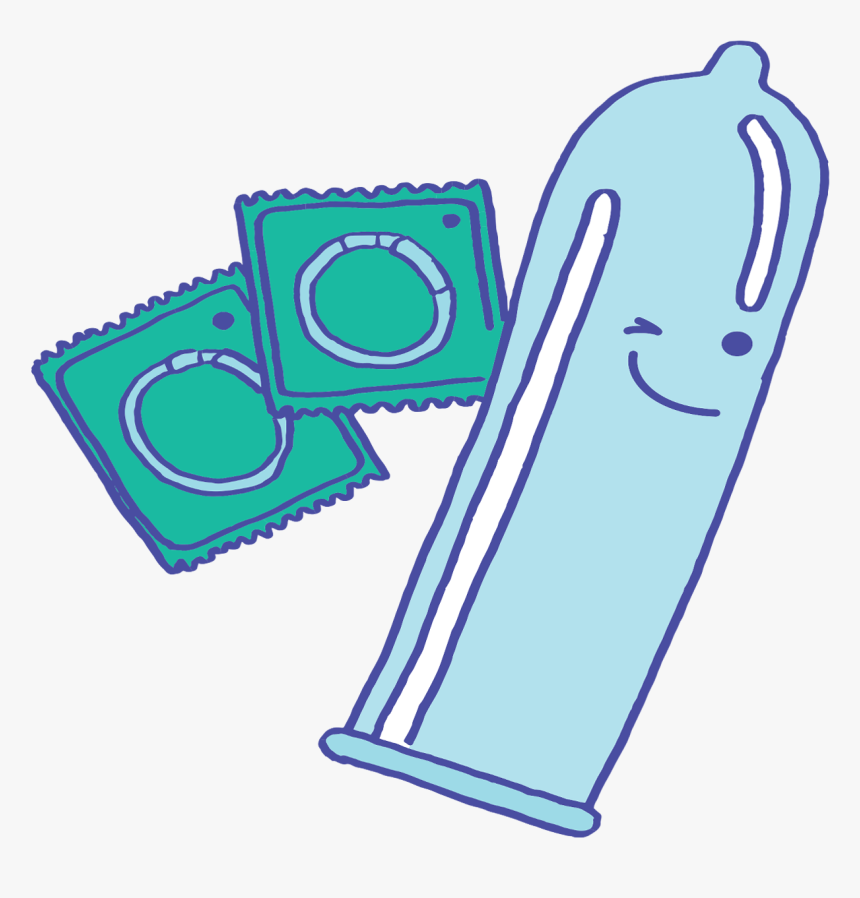
During frontal hole/vaginal intercourse condoms break about 2% of the time. During anal intercourse condoms break 4% of the time.
Condoms “fall off” 3% to 5% of the time.
Condoms slip down (but not off) 13% of the time.
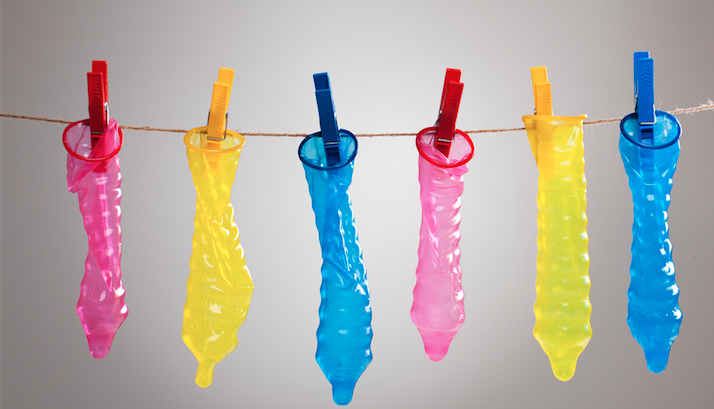
For these reasons it’s important to make sure you are holding the base of the condom when pulling out to make sure it stays in place, removing the condom while still erect, and using condoms that are properly fitted.
Lots of lube will also decrease chances of breakage, as will changing your condom to a new one every 12-15 minutes.
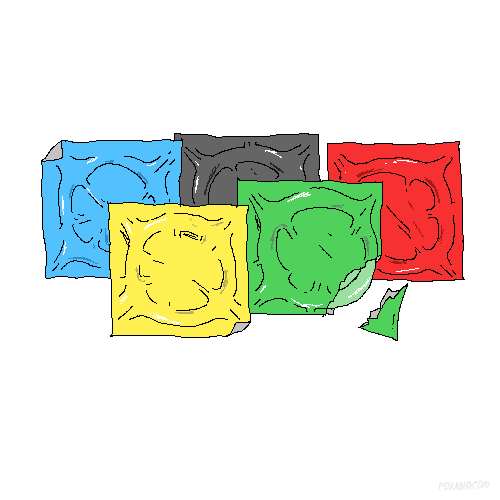
You also want to make sure you’re checking the expiration date on your condoms and storing your condoms in a cool place where they won’t risk getting punctured.
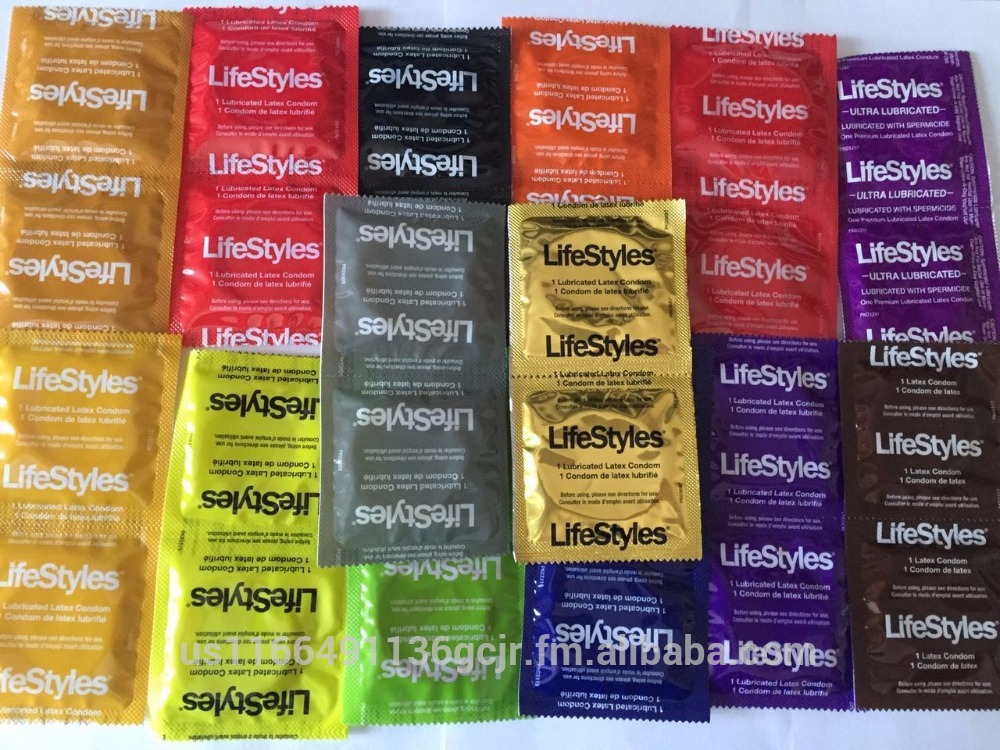
While PrEP is 99.9%* effective when taken correctly, it does not prevent STI transmission from occurring. Therefore, condoms are our most effective tool for warding off unwanted infections. Canadian Guidelines on HIV Pre-Exposure Prophylaxis recommend condoms as part of a combination prevention strategy for this reason.
You may also just be getting started on PrEP, returning to it, have missed several doses, or are using PrEP-On-Demand which does not offer the same protection. In these situations, a partner may want to incorporate condoms into your sexual encounter.
*we can’t say anything is 100%, but breakthrough cases are extremely rare.
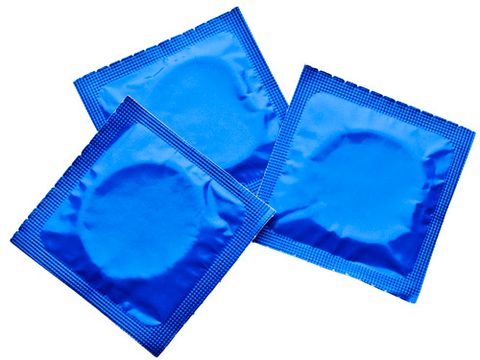
Condoms also provide functions outside the scope of serving as a barrier against STI and HIV. Thick condoms for instance can help reduce sensitivity and help extend your fuck sessions, ribbed condoms can help create a different sensation when fucking, and bottoms who haven’t had a chance to douche may want to use a condom to reduce concerns about mess and cleanup. At ACT we have a range of condoms available for free, including: ribbed, large, snug, latex-free, thin, flavored, glow-in-the-dark, internal and standard external condoms.

Lastly, it can take time getting comfortable going condomless. Especially after over 30 years of safer sex messaging telling you to always use a condom! So if you still want to use condoms while getting used to the idea of being on PrEP, that’s ok too.
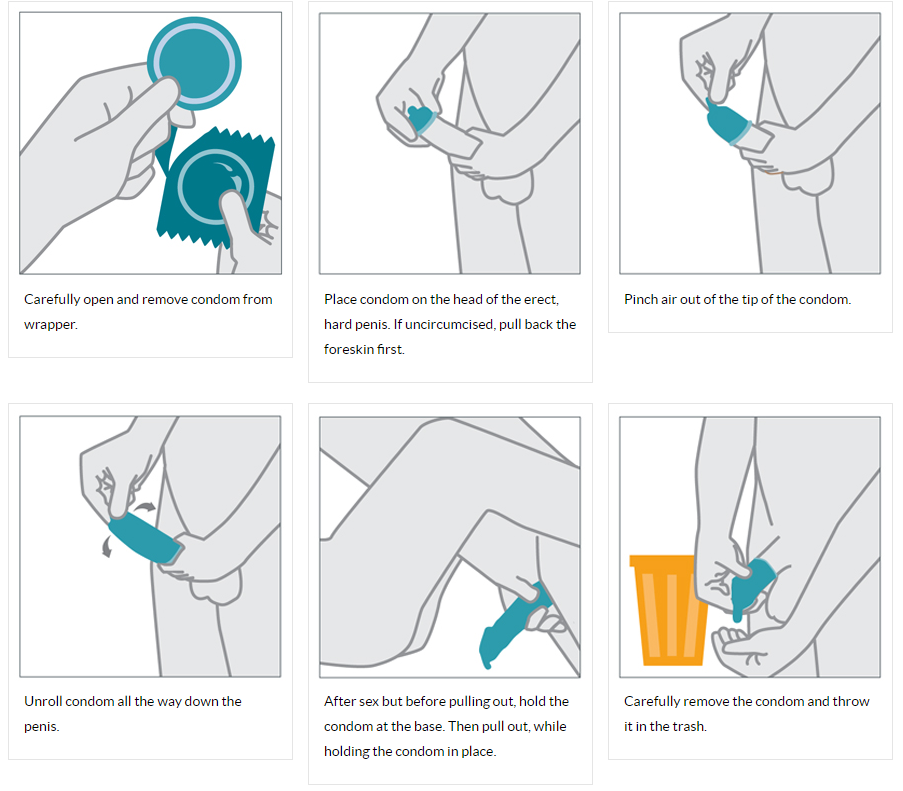
To obtain free dental dams, e-mail supplies@actoronto.org, or make your own using an external condom and scissors as laid out below.
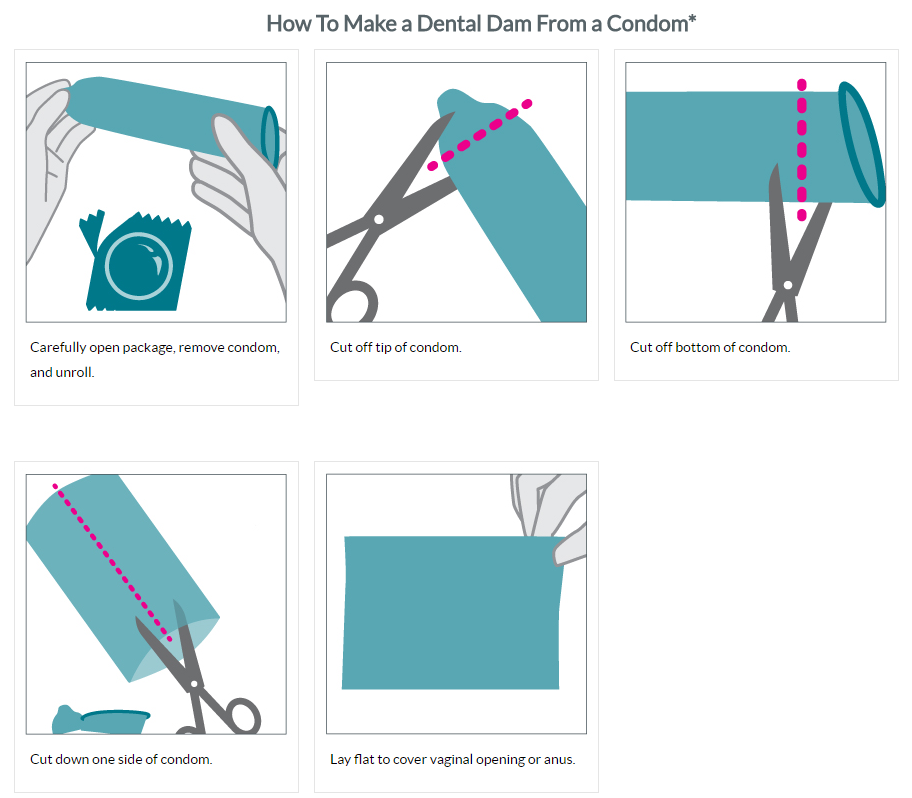
Lube For You: A Glide Guide
Whether we’re topping, bottoming, or jerking off we all use lube at some point. Unfortunately, your ass isn’t a self-lubricating machine, and Trans guys on T can experience dryness related to hormone therapy. But with dozens of brands and types of lubes available sometimes it can feel like you need be a chemist to figure out which is best for you.
Choosing the right lube can not only help reduce the risk of sexually transmitted infections (STIs) but it may also mitigate some uncomfortable anal health issues like hemorrhoids and fissures.
If your idea of a good lubricant is a bespoke $60 bottle of imported lube or the first, cheapest thing you find at the drug store, this guide is for you. We’ll be going over all the different types of lubes you can get in the store as well as a couple of lube alternatives guys use in a pinch to get things slippery.
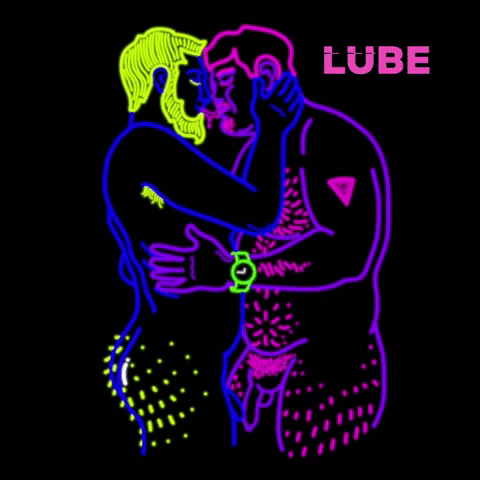
Your Lube Options
Water-based lube is the most common type of lube. Almost every brand will have some sort of water-based lube and it is the lube we distribute the most at ACT.
Water-based lubes can be used with just about anything safely. You can use it for skin-to-skin contact (raw), latex and plastic condoms as well as sex toys made of silicone, plastic, rubber, glass, wood, and stainless steel. Water-based lubes are also extremely easy to clean up.
The major downside to water-based lubes is that it will dry with both time and friction. This means that you will need to consistently reapply, especially for rougher or longer sessions. It’s also not ideal for the shower or any other wet environment.

Silicone-based lube has a smoother, slicker feel to it than water-based lube. We prefer silicone lube for anal sex because unlike water-based, it doesn’t dry out or get absorbed into the body. You can use less of it and won’t have to reapply as often. Its thicker consistency also offers more of a cushioned feel which works perfectly to help protect the delicate membranes in the ass or front hole.
Silicone lubes are also safe to use with condoms or skin-to-skin contact.
Silicone lubes come with a few downsides as well. It isn’t safe to use with silicone toys. Using the two together may cause the surface of toys to break down or discolour. You can safely use silicone lubes with toys made of other materials.
Per ounce, silicone lube tends to be more expensive as well. Due to its water resistance, it’s great for wet environments but it may also be difficult to wash out of fabrics like jocks and bedsheets.
Oil-based lubes are often much thicker in consistency than silicone or water (think room temperature coconut oil). Oil-based lubes share most of the pros of silicone lubes. Just like silicone, it won’t dry-out and you’ll need to reapply less often.
Oil-based lubes are totally fine to use with all your toys, including silicone ones.
Oil-based lube can be extremely difficult to remove and may permanently stain fabrics. The major downside of oil-based lubes is that it can cause latex safer sex barriers like condoms to break down, increasing the chances of ripping or tearing. If you plan to use condoms, avoid using oils, or use a latex free condom.
These lubes combine a base of water and silicone to offer the best of both worlds. The water-base gives slipperiness and the silicone gives you its characteristic smoothness. If you typically prefer water-based lubes because of compatibility with sex toys or choose silicone for its longevity, a hybrid might be best for you.
It also doesn’t stain, washes away easily with water, and requires very little reapplication. Before using it with your silicone sex toys, do a spot test first to ensure compatibility.
Sometimes we can forget about lube, or sometimes, guys like to keep things as natural as possible. Precum and spit can seem like a good alternative in the moment, but without lube comes friction, which could cause your condom to break.
If you’re masturbating with just your hand, going dry or using spit or precum can work – but there’s still a risk of too much friction causing damage or affecting sensitivity. It’s also important to note that precum can be a point of transmission for HIV.
Our recommendation is simple…lube it up!

For those who want to spice (or usually, sweeten) things up, the lube world has an option for you: flavours!
The range of flavours available is vast, from fruity to minty to chocolatey, but options are virtually endless…we even found a bacon flavoured lube in our searches. Many flavoured lubes contain sweeteners or other chemicals that can harm sensitive areas like your butt, vagina or front hole. They are recommended only for oral sex, to enhance taste and add more slip than just spit can offer – but that is not their only use! Try dripping some on your partner’s lips or inner thigh and lick it off – you might be in for a surprisingly tasty experience. Again, before playing with toys, make sure your lube is compatible.
Sometimes we’re in need of more lube than our fingers can apply. That’s why (or lube launchers) may be a great option for deep ass play. Lube shooters are small devices with a plunger designed to help more lube get into those hard to reach places. If you notice a lot of friction during sex or you’re someone who needs to constantly reapply your lube, a lube shooter might be your answer.
Check them out here.
Trans guys on testosterone may notice increased dryness in their front holes. Over time, T can also thin the lining of the front hole, increasing the risk of tears. This thinning can be treated with estrogen creams applied topically. When applied this way, these creams should not reverse the effects of T. We recommend you speak to your medical professional to chat about which options are best for you.

Let’s face it: not everyone uses condoms anymore. Guys sometimes prefer other risk reduction strategies, such as using PrEP and undetectable viral load. Even if you don’t use condoms, lube is a helpful strategy to reduce HIV and STI transmission!
One of the best features about lube is its capacity to ease strain on your ass during sex. Without lube, fucking can lead to micro-tears. These tears can lead to an increased risk, and when there’s bleeding, it means that HIV or STIs have direct access to the bloodstream. Additionally, lube can alleviate sex from causing other issues, such as anal fissures and hemorrhoids.